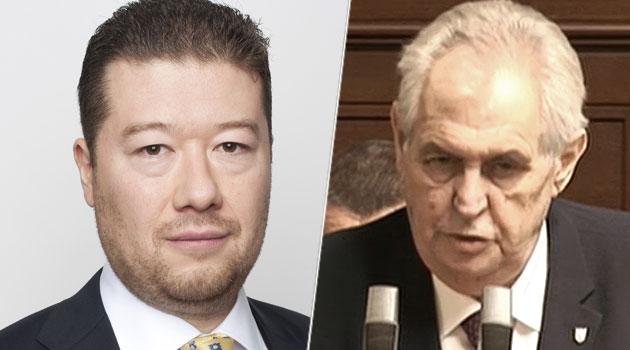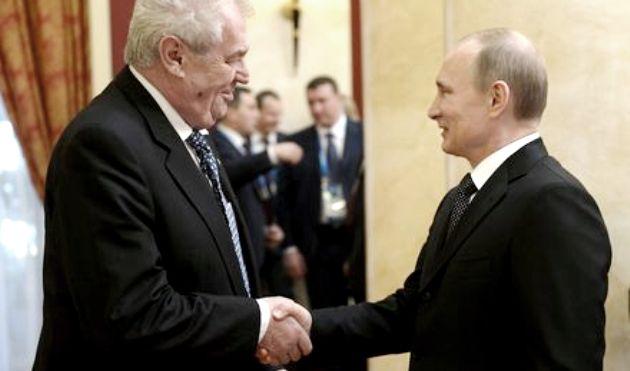Czech State Security Council takes note of extremism report as originally worded, Czech President did not get his way

The State Security Council (Bezpečnostní rada státu – BRS) has taken note of the annual report on extremism in the Czech Republic for the year 2017 as it was originally worded by the Czech Interior Ministry. That decision was then communicated to the Czech News Agency today by Czech Interior Minister Jan Hamáček (Czech Social Democratic Party – ČSSD).
The report can now be reviewed by the Government. The Czech media previously reported that discussion of the material had been delayed by objections from the Office of the President to the fact that it mentions the “Freedom and Direct Democracy” movement of Tomio Okamura (SPD).
“The State Security Council today took note of the Report on Extremism as originally worded and submitted by the Interior Ministry. The material will be discussed at the Government,” the Interior Minister tweeted.
The BRS was last meant to deal with the report at its most recent meeting on 18 September but apparently ran out of time to do so. The media reported at the beginning of September that the Office of the President was lobbying for fundamental changes to the document, alleging that the original version was biased and tendentious.
The Office of the President was said to have been bothered mainly by the report mentioning the SPD movement, which is seated in Parliament, in association with extremism. “It is absolutely unacceptable for the parliamentary political party the SPD to be included in the report, as well as the many allegations by the authors of the report about that political entity and its representatives,” the media previously quoted the Director of Security at the Office of the President, Jan Novák, as saying.
“The statement that the SPD does not meet the definition of an extremist entity as defined by the ministry is no alibi,” Novák said. The media have also pointed out that the Government’s review of the report is now quite delayed, as in previous years the document has customarily been released in May.
In October the Interior Ministry rejected the idea that other politicians could interfere with the report and said the ministry would release the report as originally worded. “The SPD movement is not, from the perspective of the definition used by the Interior Ministry, an extremist subject,” the report reads.
“However, [the SPD] chooses similar subject matter as do right-wing extremists and not infrequently its opinions about that material are similar to those of right-wing extremists. In some cases the statements made by representatives of the SPD are even more radical than the statements made by representatives of the extremist parties on the right as traditionally understood,” the report continues.
“The SPD movement has absolutely eclipsed entities on the extremist right as traditionally understood and has managed to do a far better job of working with their dominant themes. From the standpoint of communications with the public, the SPD has appeared to be far more professional and has had incomparably better financial resources available to it,” the report states.
“The movement has not been encumbered by any connections with extremist militants, just as it has not been limited by any ongoing or past court proceedings related to its political activity. The SPD movement has officially distanced itself from totalitarian ideologies and does not attempt to covertly espouse them, for example, through the use of symbolism,” the report concludes.
As far as anti-immigrant and anti-Muslim remarks are concerned, the report states that the incidents noted in the year 2017 were not the first time that SPD chair Tomio Okamura has used xenophobic rhetoric – previously, during times of high anti-Romani sentiment, he also tended to make antigypsist remarks. The report finds the existence of the SPD movement has also unequivocally influenced the form of the domestic extremist scene in the Czech Republic.
Each of the entities involved with the extremist scene has had to redefine itself vis-a-vis the SPD movement. Entities on the extreme right as it has been traditionally understood have perceived the SPD as competition and have been aware that such an entity has entered their traditional field of activity.
